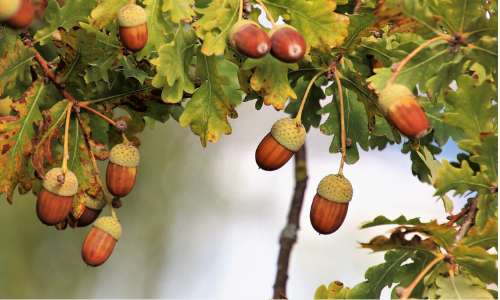Winter is coming. The park has been shrouded in mist for a few mornings recently, and the squirrels and jays are hoarding food for the hard times ahead. So industrious are they, that one wonders if they know it will be a very cold and severe winter; animals, after all, have been used in augury for hundreds of years to predict the weather.
Cows are thought to have a heightened awareness of barometric changes in their locality.
Frogs and toads are acutely sensitive to underground movements which change the chemistry of their ponds; apparently one can tell the temperature of the air by the cricket’s chirping and all sorts of birds have a middle ear receptor which can detect minute shifts in atmospheric pressure.
The park’s fauna are not the only ones trying to tell us nature-lovers something.
As you probably know, there are lots of indicators around to show we aren’t really helping Mother Nature protect herself against the onslaught of industrialisation, mineral extraction, wildlife murder etc. (see below for lots of links to disturbing reports!)
However, it is possible to make a stab in the right direction – think about saving some seeds and possibly sowing them! Here is more info –
https://scottishwildlifetrust.org.uk/2020/09/collecting-seeds-to-plant-trees/
The RSBP has also come up with some ideas about what we can all do:
https://www.rspb.org.uk/our-work/rspb-news/news/stories/revive-our-world-launch2/
The past few months has seen a plethora of papers, reports, announcements and pontifications on green spaces, climate, the future… here are just a few you could look at –
The Convention on Biological Diversity (CBD) tells us how far off the mark we are:
https://www.cbd.int/
The Royal Society for the Protection of Birds has produced its own report about how far which targets, if any, have been met:
http://ww2.rspb.org.uk/Images/A%20LOST%20DECADE%20FOR%20NATURE_tcm9-481563.pdf
Although action has been in short supply, the public believes nature is very important. Natural England produced a report in September 2020 showing that nine in 10 adults in England reported that protection of the environment is important to them individually. Nearly three quarters of adults were concerned about biodiversity loss in England.
There is plenty of evidence around that parks and green spaces are valuable during this current pandemic, shown in a report by by UK.gov: :
https://findingnature.org.uk/2020/04/08/a-new-relationship-with-nature/
Indeed,
Indeed, the Wildlife Trusts for Lancashire, Manchester and North Merseyside have released a report on how local people used nature to help find a way through difficult or sad times:
On the other hand, a report from , Friends of the shows that One in five people, apparently, do not have easy access to a lovely park like ours:
And although you can go for a stroll along nearby Mersey or Goyt rivers, keep in mind that in England, in 2020, every single river is polluted beyond legal limits, according to river health assessments conducted by the Environment Agency.
https://www.wildlifetrusts.org/blog/ali-morse/sorry-state-our-waters
Note – These are EU standards, not clear if they will be lowered come our exit.
The examples could go on and on, we suppose that everyone just needs to do as much as they can to delay the harm to nature – see ideas above!
Image – thanks to Pixabay: https://pixabay.com/
.

